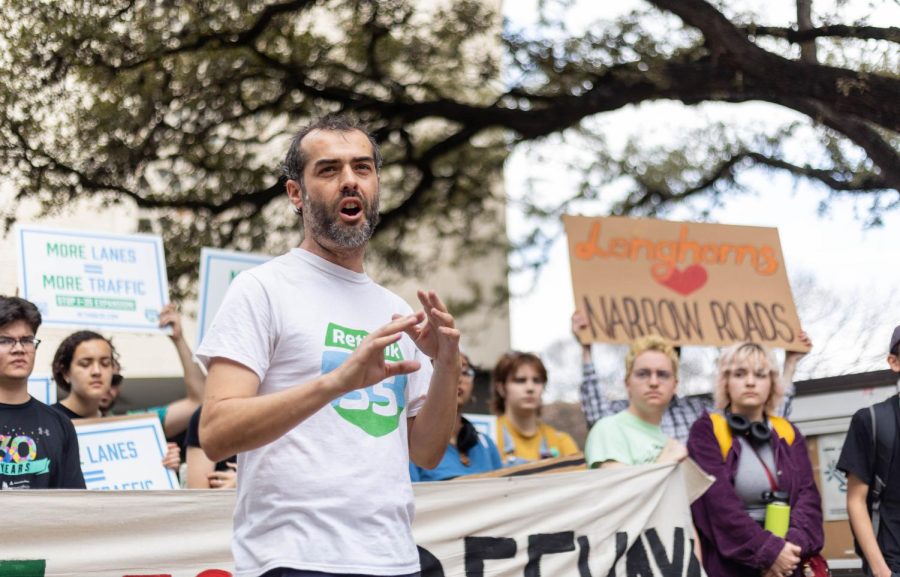‘Our future is not freeways’: UT students and faculty protest I-35 expansion
Executive director of Rethink35 Adam Greenfield speaks against I-35 expansion at the University of Texas at Austin on Feb. 15, 2022. Rethink35 organized with UT students to protest the Texas Department of Transportation’s proposal to expand I-35.
February 15, 2023
Members of the Rethink35@UT student group, a local chapter of the Austin-based nonprofit Rethink35, held a rally in front of the Flawn Academic Center on Wednesday protesting the potential expansion of Interstate 35 through Austin.
Under the Texas Department of Transportation’s proposed I-35 Capital Express Central project, I-35 from Ben White Boulevard to U.S. 290 East will add two non-tolled managed lanes in each direction, along with additional improvements to address mobility, safety and connectivity between East and West Austin.
However, Rethink35 board member Miriam Schoenfield said widening freeways will only make congestion and traffic fatalities worse while failing to improve east-west access.
“It’s just making more space between the east and west and making it harder to cross it,” said Schoenfield, an associate professor of philosophy. “There’s going to be fewer crossings, and the distance between crossings is, in some cases, enormous.”
As an alternative to TxDOT’s proposed I-35 expansion, Rethink35 has introduced their own plan to replace the highway through Austin with an urban boulevard free from non-local traffic.
Sustainability sophomore Catherine Chan said TxDOT’s plan would include long and huge construction that would cause pollution.
“What Rethink35 is proposing is an alternative — we make a boulevard instead of a highway and reroute that traffic around the city,” Chan said. “These alternatives could promote people getting out to exercise more, biking more, walking more and cause less pollution.”
Jane Cohen, a law professor who spoke at the rally, said it is important for UT students and faculty to get involved with the discussion around the expansion because it directly affects their standard of living.
“I’m inspired to believe that having the conversation on campus and bringing in more voices who are experts with regard to transit, public health, respiratory illnesses in children and the consequences of segregated communities … (will lead to) an understanding that would be deeper and more meaningful,” Cohen said.












